![]()
![]()
![]()
Use LEFT and RIGHT arrow keys to navigate between flashcards;
Use UP and DOWN arrow keys to flip the card;
H to show hint;
A reads text to speech;
67 Cards in this Set
- Front
- Back

Adolf Hitler
|

1932 elected Chancellor of Germany who promised a German Reich
|
|

Otto Spengler
|

supported German hegemony, refused to follow the Nazis, heralded as precursor to Socialist movement, wrote The Decline of the West
|
|

Sigmund Freud
|

psychologist who focused on explanations for mental disorders based on his introduction of the idea of conflicts between conscious and unconscious mental processes which he believed were often revealed in one's dreams
|
|

Werner Heisenberg
|

German physicist and philosopher who discovered a way to formulate quantum mechanics in terms of matrices (1925). For that discovery, he was awarded the Nobel Prize for Physics for 1932
|
|
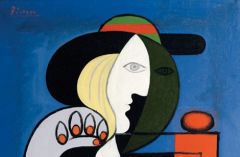
Picasso
|

artist who displayed influences from non-European traditions
|
|
|
Bauhaus
|
an institution which brought together architects, designers, and painters from several countries to focus on functional design - a marriage of engineering and art - uniquely suited to the urban and industrial twentieth-century landscape
|
|
|
Depression
|
economic depression so long-lasting, so severe, and so global that it has come to be called the Great Depression
|
|
|
the New Deal
|
legislation pushed by President Franklin Roosevelt that prevented the total collapse of the banking system, provided farm subsidies, promoted jobs in the private and public sectors, guaranteed minimum wage/decent working conditions, granted workers right to organize, and provided social security
|
|
|
New Economic Policy
|
Lenin's plan which temporarily restored the market economy and some private enterprise in Russia, though large industries such as banks and transportation remained under gov't control
|
|

Trotsky
|

Leon Trotsky played an integral part in the October Revolution and the subsequent Russian Civil War, moving from revolutionary to politician to military commander of the Red Army
|
|
|
"lost generation"
|
phrase coined by Gertrude Stein to describe American intellectuals and literati who flocked to Paris in the postwar years seeking to find some salve for their disillusionment
|
|

Arnold J. Toynbee
|

wrote A Study of History, sought to make sense from the chaos of the war years
|
|

Albert Einstein
|

nobel prize winning German scientist, offered position of President of Israel which he declined, leading figure in the World Government Movement after WWII
|
|
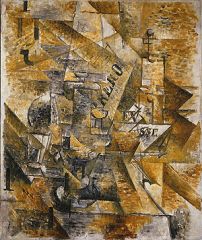
Cubism
|

Cubism was one of the most influential visual art styles of the early twentieth century. It was created by Pablo Picasso (Spanish, 1881–1973) and Georges Braque (French, 1882–1963
|
|
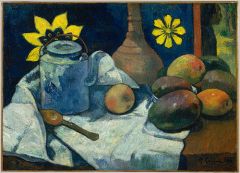
Gauguin
|

Paul Gauguin was a post-impressionist painter which tried to express interior states rather than surface appearances
|
|

Gropius, Walter
|

German-American architect, one of the leaders of modern functional architecture
|
|
|
Keynesian Economics
|
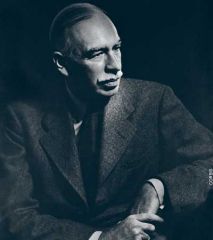
formulated by John Maynard Keynes who wrote The General Theory of Employment, Interest, and money. the big problem is seen as inadequate demand, rather than excessive supply; logically it followed that governments should respond by stimulating the economy by increasing money supply and thereby encouraging investments, by undertaking public works projects to provide jobs, and by redistributing incomes through tax policy
|
|
|
Reds vs. Whites
|
soviets/Bolsheviks vs. "Whites" (opponents of the new regime)
|
|

Stalin, Joseph
|

emerged as the unchallenged dictator of the Soviet Union by 1928 after struggle of Bolshevik leaders to decide on a leader post-Lenin's death. Stalin annihilated his rivals through treachery, deceit, and violence. He supported the ideal of "socialism in one country," and was determined to rapidly build Russia into an industrial powerhouse, no matter the cost in resources or lives.
|
|
|
kulaks
|
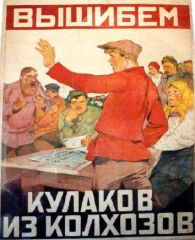
peasants that made up less than 5 percent of the Russian peasantry, they rose in power during the NEP (New Economic Plan of Lenin) (Poster is part of Stalin's "we will keep out the kulaks" propaganda)
|
|
|
"socialism in one country"
|
Stalin's plan for Russia which was determined to rapidly build Russia into an industrial powerhouse, no matter the cost in resources or lives.
|
|
|
collectivization
|
Included in Stalin's plan for centralization, collectivization in agriculture required people to give up their resources to the government. Estimated that at least 3 million peasants died as a result of the push for collectivization of agriculture
|
|
|
fascism
|
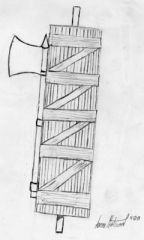
based on the term for a bundle of rods strapped around an axe ( the symbol of authority in ancient Rome, known as the fasces) fascism is an authoritarian political ideology that considers the individual subordinate to the interests of the state,
|
|
|
corporatism
|
name of Mussolini's scheme for business in which the different interests in society came together under state control
|
|
|
"pronatalist" policy
|
policies to encourage population growth by limiting contraceptive use among other things as well as increasing incentives for large families
|
|
|
anti-Semitism
|
hallmark of Nazi rule, built on underlying religious hatreds. Nuremberg Laws deprived Germans of Jewish ancestry of their civil and citizenship rights, which then gave the Nazis unlimited power to deal with the Jews as they wished.
|
|
|
pogroms
|
A pogrom (from Russian: "NORPOM" (meaning "wreaking of havoc") is a massive violent attack on a particular ethnic of religious group with simultaneous destruction of their environment (homes, businesses, religious center). The term has historically been used to denote massive acts of violence, either spontaneous or premeditated, against Jews, but has been applied to similar incidents against other
|
|
|
Muslim League
|
created in 1906 when the Muslims had become concerned that the Indian National Congress would replace the British with Hindu leadership
|
|
|
ahimsa, satyagraha
|
Ahimsa is a rule of conduct that bars the killing or injuring of living beings, Satyagraha was the term Gandhi used to describe his philosophy of non-violent resistance
|
|
|
Amritsar massacre
|
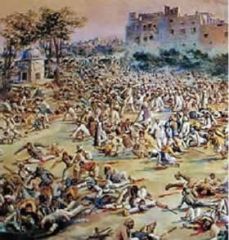
(April 13, 1919), incident in which British troops fired on a crowd of unarmed Indian protesters, killing a large number. It left a permanent scar on Indo-British relations and was the prelude to Mahatma Gandhi's Non-cooperation Movement of 1920–22.
|
|
|
Government of India Act
|
British act that established autonomous legislatures in the provinces, a bicameral national assembly, and an executive under control of the British
|
|
|
May 4th Movement
|
Chinese people made mass protests against the presence of the Japanese
|
|
|
Guomindang
|
Nationalist People's Party of China, Sun Yatsen had attempted to bring the country under the leadership of that one party
|
|
|
Long March
|
Under military pressure from the Guomindang, the CCP (Chinese Communist Party) made a 6000 mile journey fleeing nationalist forces to northwestern China, thousands died and Mao Zedong solidified his role as the leader of the CCP
|
|
|
Mukden Incident
|
In 1931, the Japanese army blew up a small portion of their Manchurian railroad and blamed it on the Chinese. They used this incident as an excuse to attack the Chinese.
|
|

Marcus Garvey
|

saw the African race as a unifying factor and preached black pride and a return to Africa
|
|

Emiliano Zapata
|

organized peasant armies and led the 1910 social revolution
|
|
|
"land and liberty"
|
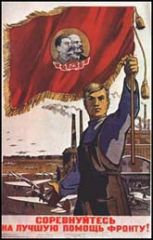
revolutionary group led by Mark Natanson which wanted the dissolution of the Russian empire
|
|
|
"dollar diplomacy" vs. "Yankee imperialism"
|
dollar diplomacy was President William Taft's encouragement of economic investment rather than military intervention vs. Yankee imperialism which was the U.S & Britain's economic policies of taking a large part in the Latin American economy including taking over the export market and takeovers of mining and oil interests
|
|

Standard Oil Company
|
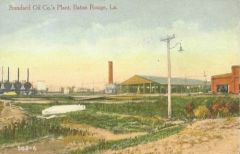
founded by John D. Rockefeller it was a predominant integrated oil producing, transporting, refining, and marketing company. Established in 1870, it operated as a major company trust and was one of the world's first and largest multinational corporations until it was dissolved by the United States Supreme Court in 1911
|
|
|
"Good Neighbor Policy"
|
policy that ensured the National Guard forces would protect American interests in Latin America
|
|

Somoza
|

long term dictator in Nicaragua, and the beginning of the Somoza dynasty. Command was given by the National Guard
|
|
|
to nationalize an industry
|
acquisition and operation by a country of business enterprises formerly owned and operated by private individuals or corporations
|
|
|
FDR
|
President of the U.S that aided the country through the Great Depression through revitalization of the economy with New Deal programs, rescinded Theodore Roosevelt's corollary to the Monroe Doctrine and pledged the Good Neighbor Policy
|
|
|
FDR
|
President of the U.S that aided the country through the Great Depression through revitalization of the economy with New Deal programs, rescinded Theodore Roosevelt's corollary to the Monroe Doctrine and pledged the Good Neighbor Policy
|
|
|
Five Year Plan(s)
|
Soviet economic practice of planning to augment agricultural and industrial output by designated quotas for a limited period of usually five years. First five year plan was Stalin's plan to industrialize Russia.
|
|
|
the Great Purge
|
campaigns of political repression and persecution in the Soviet Union orchestrated by Joseph Stalin during the 1930s, which removed opposition to his power
|
|

Mussolini, Il Duce
|

1922 Mussolini inaugurated a fascist regime in Italy, he took the name Il Duce and moved to eliminate political parties, limit the freedom of the press, outlaw free speech, and curb free association
|
|
|
NSDAP
|
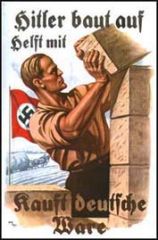
National Social Democrat Party, formerly Social Democrat Party but Hitler added National to the front in order to insert racist, nationalistic ideas
|
|
|
Nuremberg Laws
|
deprived Germans of Jewish ancestry of their civil and citizenship rights, which then gave the Nazis unlimited power to deal with the Jews as they wished
|
|
|
Kristallnacht
|
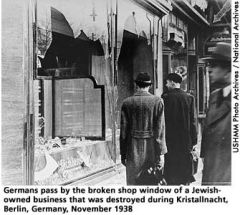
the "night of broken glass" in November 1938, a clear signal that conditions for Jews in Germany were going to quickly deteriorate, number of German Jews seeking to emigrate increased dramatically afterwards
|
|
|
Indian National Congress
|
founded in 1885, stressed collaboration with the British as a way to self-rule and was supported by many prominent Hindus and Muslims
|
|

(Mahatma "Great Soul") Gandhi
|

devout Hindu of the merchant middle class who was trained as a Lawyer. He had a refined philosophy of tolerance and nonviolence and devised a strategy of passive resistance to authority. While working with the Indian National Congress, he transformed it into a representative institution of all classes
|
|
|
Pakistan
|
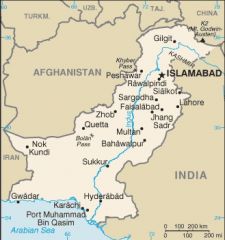
The separation in 1947 of British India into the Muslim state of Pakistan (with West and East sections) and largely Hindu India was never satisfactorily resolved, and India and Pakistan fought two wars - in 1947-48 and 1965 - over the disputed Kashmir territory
|
|

Sun Yatsen
|

1866-1925, became president of a Chinese republic
|
|

Mao Zedong
|

1893-1976, librarian and former teacher, formed the Chinese Communist Party (CCP) in 1921
|
|

Jiang Jieshi
|

Jiang Jieshe, leader of the Nationalist People's Party after Sun Yatsen's death, they purged communists out of the party through a series of murders
|
|
|
Maoism vs. Marxist-Leninism
|
Maoism - radical communist platform that included women's equality and complete social revolution with a dictatorship of the proletariat. Marxism - More radical socialism (economic competition is inherently unfair and leads to injustice/inequality) system based on rule of the working class.
|
|

Jomo Kenyatta
|

African nationalist who became the president of Kenya, spent fifteen years in Europe attending universities . Part of a group of new elite in Africa that used European languages and adopted European dress but still managed to forge new ideas of African identity
|
|
|
Pan-Africanism
|
philosophy that is based on the belief that African people share common bonds and objectives and that advocates unity to achieve these objectives
|
|

Pancho Villa
|

Upon the outbreak of the revolution of 1910-1911 against the Mexican dictator Porfirio Díaz, Villa offered his services to the rebel leader Francisco Indalécio Madero. During Madero's administration he served under the Mexican general Victoriano Huerta, who sentenced him to death for insubordination. Villa escaped to the United States, and following the assassination of Madero and the assumption of power by Huerta in 1913, he returned to join the opposition under the revolutionary leader Venustiano Carranza (he led a rebellion v. him too)
|
|
|
Diego Rivera
|
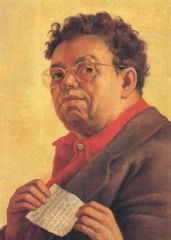
popular Mexican painter, celebrated indigenous art and socialism
|
|
|
United Fruit Company
|

major American corporation that traded tropical fruit (primarily bananas and pineapples) grown in Third World plantations and sold in the United States and Europe. Critics accused it of neocolonialism
|
|

Getulio Vargas
|

dictator president of Brazil who pushed industrialization with the support of the military and enacted social welfare reforms for workers
|
|

Cesar Sandino
|

leader of the rebels in the Nicaraguan civil war who refused to accept any peace settlement that kept the Marines in the country
|
|

President Cardenas
|

president of Mexico, nationalized the Mexican oil industry in 1938
|
|
|
Chiquita Banana
|

singing cartoon character create by the United Fruit company to soften stereotypes and criticism of the companies involvement in Latin America
|

